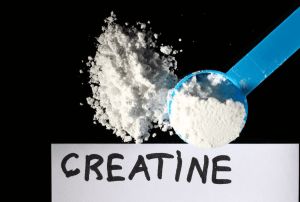Very low calorie diets are not more effective than standard low calorie diets for weight loss
VLCD stands for Very Low Calorie Diet and was used frequently in weight loss programs in the 1980s and early 1990s. The principal is that the individual eats less than 800 kcal/day. An alternative definition of a VLCD is a diet that provides <50% of an individual’s predicted resting energy expenditure (REE). REE represents the amount of energy expended by a person at rest, and is also the required energy to support normal metabolic functions.
Very low calorie diets
The VLCD, however, is considered safe and effective when used by appropriately selected obese individuals (BMI >30) (1-3). The minor side-effects reported by participants are usually mild and easily managed. A study where one participant followed VLCD reported no serious side-effects. (4)
The short term loss of weight on VLCD is a fact. A meta-analysis where six different randomized controlled studies compared the conventional low-calorie diet to VLCD, with follow-up assessment of at least one year after the treatment had ended. The VLCD produced a greater short-term weight loss, with the participants losing up to 25% of their initial body weight during 12-16 weeks of the treatment. However, the long-term weight-loss after 12 months was the same in both groups. There’s no suggestion that the rapid weight losses experienced in the first 12 months on VLCD leads to greater health improvements than with standard low-calorie diets. (5)
Initially VLCD produced a greater weight loss than low calorie diets, due to the more pronounced caloric restriction, but the long-term outcome after one year or more was not different from that of conventional low-calorie diets only.
Study outcome
The main problem with weight-loss is that it’s hard to maintain, even on VLCD. By the follow-up, one year following treatment, nearly all of the participants had regained 35–50% of their lost weight. Between 3 and 5 years after treatment the participants had regain 100% of their lost weight, even with behavioral weight maintenance therapy. (6) It should be said that this is true with almost every weight loss study conducted.
If you want to learn more about the science behind long term weight loss, check out our book Diet Like a Doctor.
Article by Maria Eklbom. Licensed physiotherapist and personal trainer.
Sources:
- Atkinson R. Low and Very Low Calorie Diets. Medical Clinics of North America. 1989;73(1):203-215.
- Tsai A. Systematic Review: An Evaluation of Major Commercial Weight Loss Programs in the United States. ACC Current Journal Review. 2005;14(5):15.
- G. Merra. Effects of very-low-calorie diet on body composition, metabolic state, and genes expression: a randomized double-blind placebo-controlled trial. Eur Rev Med Pharmacol Sci 2017; 21 (2): 329-345
- Rossner S. Effects of 46 Weeks of Very-Low-Calorie-Diet Treatment on Weight Loss and Cardiac Function-A Case Report. Obesity Research. 1998;6(6):462-463.








